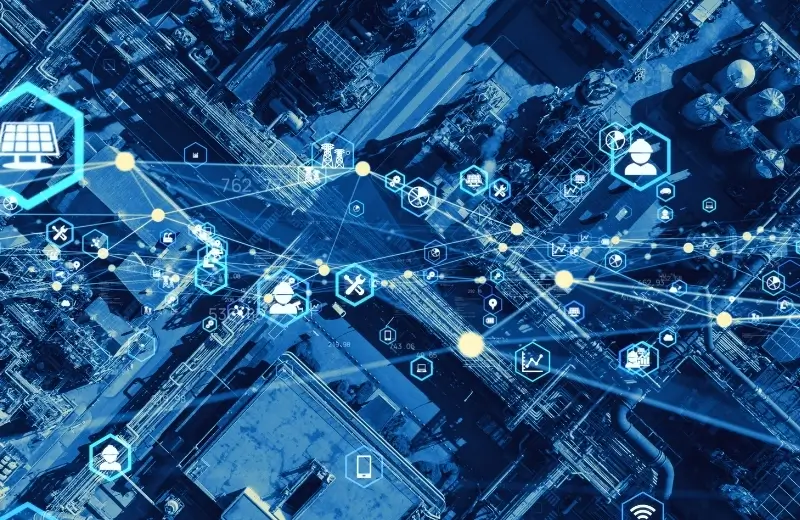The healthcare sector has always been a cornerstone of human well-being and societal progress. In 2025, as global healthcare systems confront challenges like aging populations, rising costs, and complex diseases, the role of data science is becoming increasingly critical. By harnessing advanced analytics, artificial intelligence (AI), and big data, healthcare systems are evolving into more efficient, personalized, and predictive ecosystems. This article explores how data science is reshaping healthcare and why it is pivotal to its modernization.
The Growing Complexity of Healthcare
Healthcare systems in 2025 are managing an unprecedented amount of data generated from various sources:
- Electronic Health Records (EHRs): Comprehensive patient histories, including clinical notes, lab results, and imaging data.
- Wearable Devices: Real-time monitoring of vital signs, physical activity, and sleep patterns.
- Genomic Data: Personalized medicine based on genetic profiles.
- Public Health Data: Surveillance systems tracking disease outbreaks and health trends.
This explosion of data presents immense opportunities for improving patient outcomes but also introduces significant challenges in managing, analyzing, and utilizing this information effectively.
Transforming Patient Care with Predictive Analytics
Predictive analytics—a core component of data science—enables healthcare providers to anticipate and prevent medical issues before they become critical. For example:
- Early Detection of Diseases: Machine learning algorithms can analyze patterns in EHRs to identify early signs of conditions like diabetes, cancer, and cardiovascular diseases.
- Hospital Readmissions: Predictive models help flag high-risk patients, enabling interventions that reduce avoidable readmissions.
- Chronic Disease Management: Continuous data from wearables, combined with AI, supports personalized treatment plans and real-time monitoring.
By shifting the focus from reactive to proactive care, predictive analytics transforms patient outcomes and reduces costs.
Enhancing Operational Efficiency
Beyond patient care, data science is revolutionizing healthcare operations. Hospitals and clinics leverage analytics to optimize resource allocation, streamline workflows, and improve decision-making. Key applications include:
- Staffing Optimization: Predicting patient volumes to ensure adequate staffing while minimizing labor costs.
- Supply Chain Management: Using predictive analytics to prevent shortages of critical medical supplies.
- Revenue Cycle Management: Identify billing inefficiencies and improve claim approvals.
These innovations enable healthcare systems to operate more efficiently, delivering better care with fewer resources.
Enabling Precision Medicine
Precision medicine—treatment tailored to individual patients—is a primary focus of modern healthcare. Data science facilitates this approach by integrating diverse genomic, clinical, and environmental data. Key benefits include:
- Personalized Treatment Plans: AI-driven models recommend therapies based on a patient’s genetic profile and medical history.
- Drug Discovery: Advanced algorithms accelerate the identification of potential drug candidates, reducing development time and costs.
- Targeted Interventions: Data analytics identifies subpopulations most likely to benefit from specific treatments.
In 2025, precision medicine is not just a futuristic concept but a growing reality, thanks to data science.
Revolutionizing Public Health
Data science also transforms public health by enabling better decision-making and resource allocation at the population level. Applications include:
- Disease Surveillance: Real-time analytics track and predict the spread of infectious diseases.
- Health Equity: Identifying disparities in healthcare access and outcomes, enabling targeted interventions.
- Policy Development: Data-driven insights guide public health policies and programs.
By providing actionable insights, data science empowers public health officials to respond more effectively to emerging challenges.
Overcoming Challenges in Data Science Adoption
While the benefits of data science in healthcare are immense, several challenges must be addressed to unlock its full potential:
- Data Privacy and Security: Ensuring compliance with regulations like GDPR and HIPAA while protecting sensitive patient data.
- Interoperability: Integrating data from disparate systems and formats remains a significant hurdle.
- Bias in Algorithms: Developing fair and unbiased AI models to avoid perpetuating health inequities.
- Skill Gaps: Addressing the healthcare sector’s shortage of data science expertise.
Addressing these challenges requires a collaborative effort involving policymakers, technologists, and healthcare providers.
The Future of Data Science in Healthcare
Looking ahead, integrating data science into healthcare systems will continue to accelerate. Emerging technologies such as quantum computing, federated learning, and advanced natural language processing promise to push the boundaries even further. Key trends to watch in 2025 and beyond include:
- AI-Augmented Diagnostics: AI systems assisting clinicians with real-time decision support.
- Telemedicine Analytics: Leveraging data from virtual consultations to improve care delivery.
- Predictive Epidemiology: Advanced modeling to prepare for and mitigate the impact of pandemics.
The convergence of these innovations will create a healthcare ecosystem that is smarter, more connected, and patient-centric.
A Data-Driven Healthcare Revolution
Data science is not just an enabler but a driving force behind the modernization of healthcare systems in 2025. From predictive analytics and precision medicine to operational efficiency and public health, its applications are transforming every aspect of the healthcare landscape. However, realizing its full potential requires addressing challenges around data management, ethics, and workforce development.
As healthcare continues to evolve, the role of data science will only grow more critical. By embracing this powerful tool, healthcare systems can deliver better outcomes, reduce costs, and improve the quality of life for millions worldwide. The future of healthcare is data-driven, and the time to act is now.



